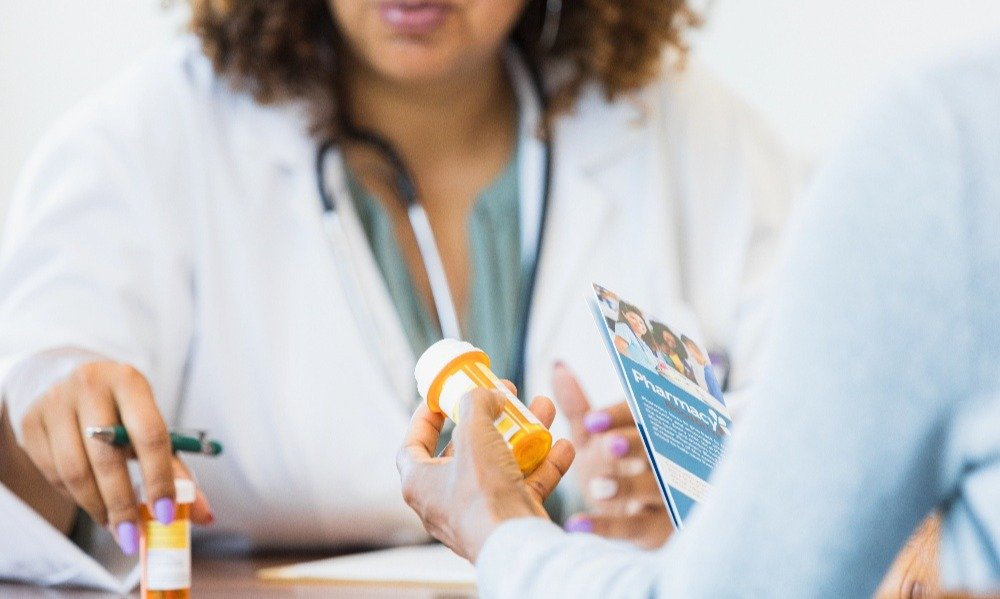
Dive into a helpful overview that will introduce you to the career of an ambulatory care pharmacy from one of Concordia’s pharmacy professors. Concordia will set you up for success as a pharmacist in the healthcare setting of your choice.
Meet pharmacy faculty
Dr. Kassy Bartelme, PharmD, BCACP, is an Associate Professor in Concordia’s School of Pharmacy and has been with the program since 2011. She earned her Doctor of Pharmacy from the University of Minnesota in the Twin Cities. Dr. Bartelme then completed a 2-year post-graduate residency with the University of Minnesota College of Pharmacy (COP). During her residency, Kassy spent time teaching in the COP and gaining experience in ambulatory care pharmacy practices. She currently practices as an ambulatory care pharmacist at Ascension Columbia St. Mary’s Cardiology Clinic in Mequon, WI.
What is an ambulatory care pharmacist?
An ambulatory care pharmacist cares for patients that go to a clinic for an appointment in an outpatient setting. These pharmacists primarily manage chronic medical conditions, such as high blood pressure, diabetes, atrial fibrillation, heart failure, asthma, pain management, mental health, and others in collaboration with physicians and other prescribers.
A key part of being a pharmacist is to ensure patient’s medications are necessary, effective, and safe. The pharmacists also evaluate the accessibility of medications and address potential adherence issues. As a specialized pharmacist, you can work in primary care clinics, outpatient disease-state management clinics in hospitals, and pharmacies. You can also provide services through telepharmacy.
What are the responsibilities of an ambulatory care pharmacist?
The pharmacist meets with the patient to discuss medications, therapy goals, and also assess for side effects or adherence issues. In this role, you may also perform physical assessments, such as blood pressure and heart rate, order labs, and assess results. The pharmacist helps patients when a condition is deemed uncontrolled or they experience side effects. This can also include helping patients that are unable to adhere to a drug regimen. It is the pharmacist’s responsibility to adjust the patient’s current medications, add new medications, and/or discontinue medications. As a pharmacist, you may need to educate patients on lifestyle changes and other nonpharmacologic ways to manage a condition. Ambulatory care pharmacists have the opportunity to create long-term relationships with patients through frequent follow-ups.
These pharmacists are also required to document each patient visits. This includes reporting subjective information (what the patient told them), objective information (labs, vitals, physical assessment results), their assessment (is the patient at goal and if not, what needs to be done), and the plan (what will be done, such as starting or discontinuing a medication, adjusting doses, ordering labs, and when to follow-up). This documentation is in the patient’s chart and is available for any other health care providers to read.
How does this pharmacy specialization serve in a cardiology clinic?
As an ambulatory care pharmacist in the cardiology clinic, Dr. Bartelme primarily manages anticoagulation for patients with atrial fibrillation or a history of blood clots. These patients take a blood-thinning (anticoagulant) medication called warfarin. She measures the effectiveness of warfarin by checking a patient’s INR (International Normalized Ratio). Dr. Bartelme also ensures the INR is within the patient’s goal range and if not, she adjusts the warfarin dose. Patients who take warfarin must have their INR checked at least every four weeks or sooner as needed. In this type of practice, she gets to know her patients well through frequent visits.
What other roles does an ambulatory care pharmacist serve?
Ambulatory care pharmacists frequently precept students and also residents. All pharmacist students must complete an ambulatory care pharmacy rotation during their Advanced Pharmacy Practice Experiences (APPE) in their fourth year. Post-graduate residents may opt to do an ambulatory care-focused residency, or complete this specific pharmacy rotation during their general pharmacy residency.
How do I become an Ambulatory Care Pharmacist?
First, you must receive a Doctor of Pharmacy (PharmD) degree. In general, pharmacists complete one to two years of post-graduate residency. You can complete a focused ambulatory care residency in your first year or as a specialized second-year residency. You may also earn board certification and add the letters BCACP after your name (Board Certified Ambulatory Care Pharmacist). After residency, you take a test to become a Board-Certified Ambulatory Care Pharmacist. To maintain your certification, you need to earn 100 hours of continuing education every seven years, or you can simply retake the test.
Why Concordia for pharmacy school?
Concordia’s school of pharmacy will help you discover the area of pharmacy that best fits your skills and interests as a healthcare provider. You might know from year one how you want to serve in pharmacy, or maybe you find out later on during your pharmacy practice experiences. Whatever your path, the coursework, patient labs, and experiential education will advance your abilities, knowledge and compassion to provide pharmacy services.
Want more information on this pharmacy specialization?
Contact Dr. Kassy Bartelme about her work as an ambulatory care pharmacist. She can also give you more details on our manageable and patient-centered pharmacy school.